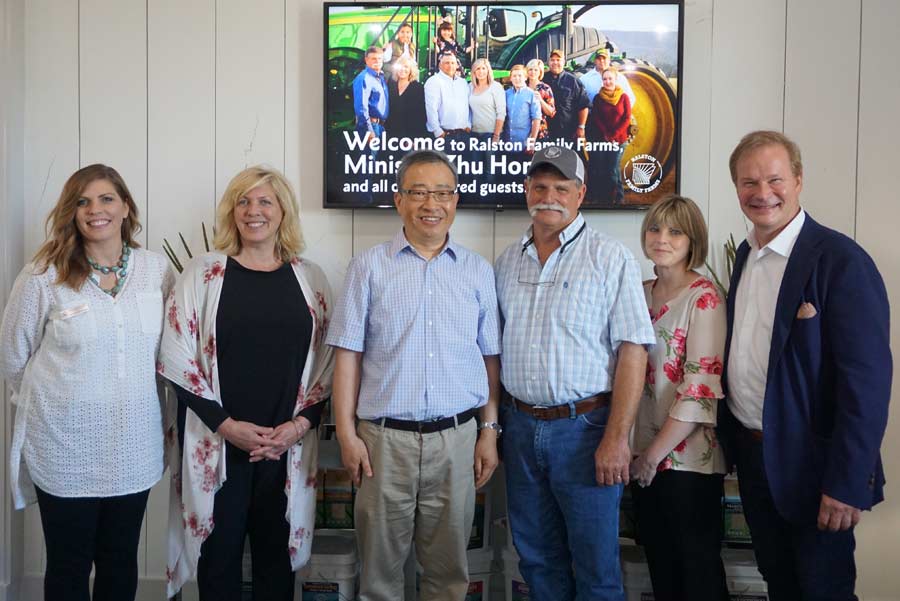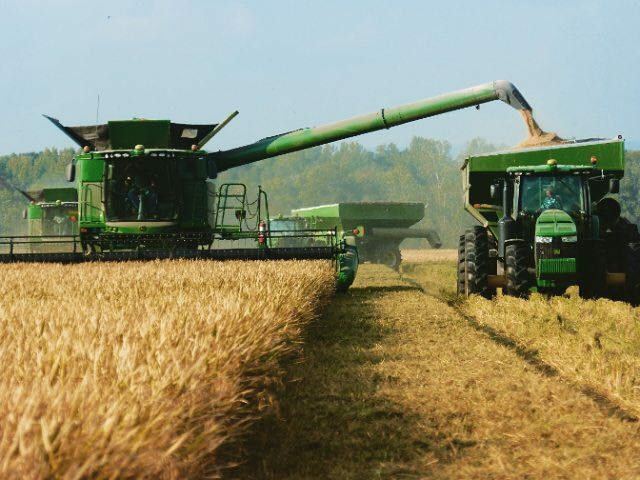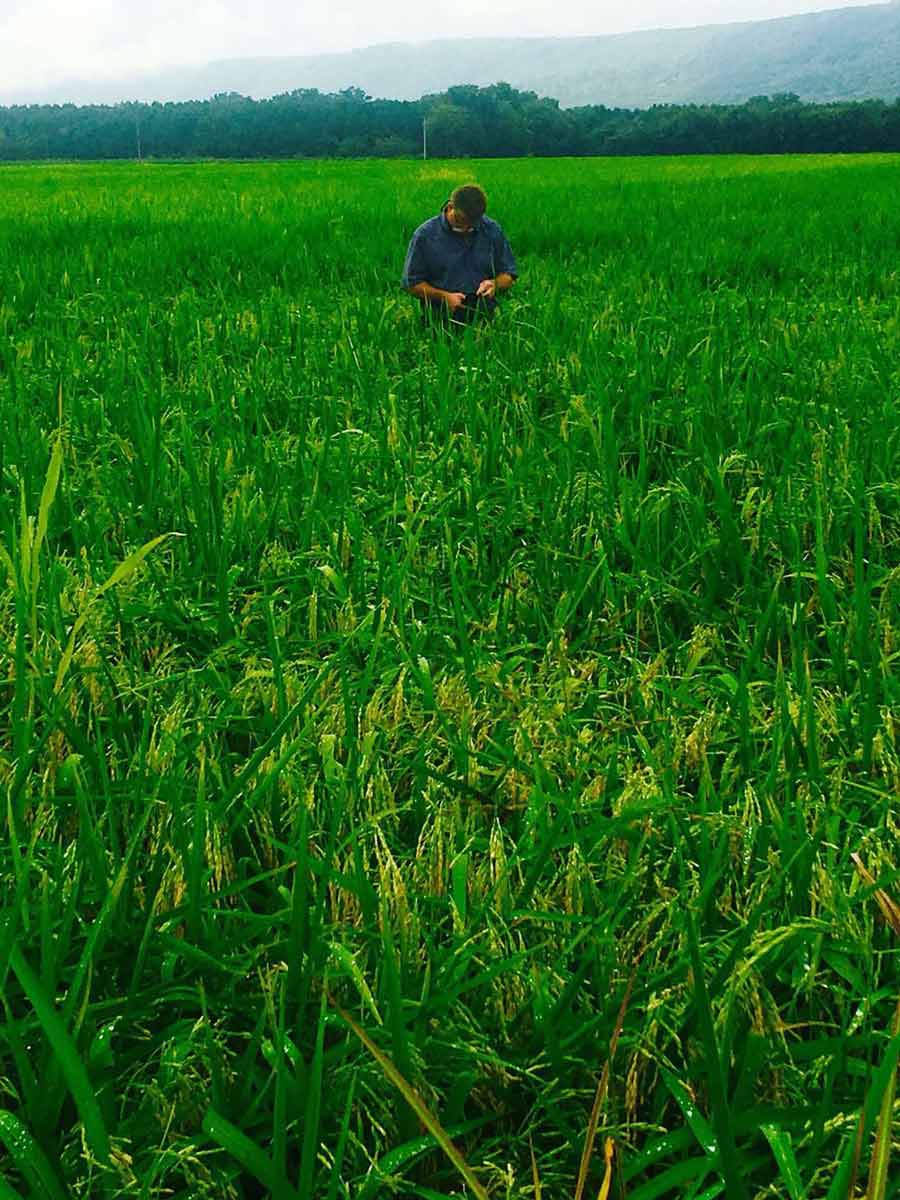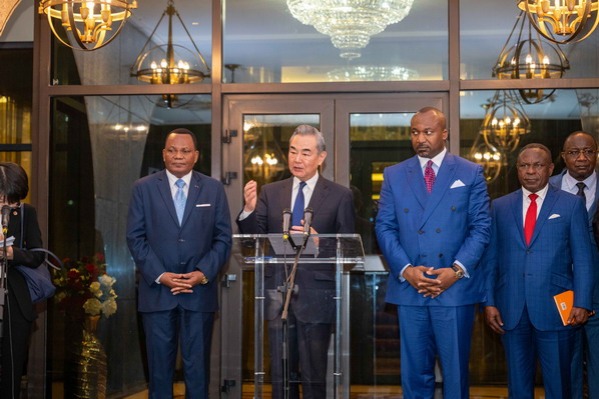Arkansas farmers wary of tariffs' impact


When Arkansas rice farmer Tim Ralston decided to try exporting his products to China, he knew that he might face some challenges down the road.
"It's a good time for us. We hope the trade war doesn't create problems," said Tim Ralston, co-owner of the Ralston Family Farms, a sprawling 5,000-acre property in Atkins, Arkansas owned and operated by the Ralston family for 10 generations. It is where the family grows, harvests, mills and packages their rice.

According to Ralston's wife, Robin, who co-owns the farm, it has the capacity to generate 15 million pounds of rice annually. But for many decades, products from the farm, which range from a variety of rice such as jasmine, basmati and purple rice, were sold only to local shops and restaurants. But now the Ralstons want to open a new venue by exporting their rice to China.
China is the world's top importer of rice. It consumed 142.7 million tons of rice in 2017, according to the US Department of Agriculture.
"It's a big population, and we feel like we may have some things that are very unique to what traditional rice is there, and we are anxious to share it," said Tim Ralston.
He said the tariff would have an effect on the value of the crops in the United States, dampening opportunities to export them. According to data from the USDA, the value for rice was $11.50 a hundredweight (a hundredweight is equal to 100 pounds) in 2017.

Robin Ralston said she is not worried about the exports to China, because the farm is certified to export internationally.
"We need to sell rice, and China needs to buy rice," she added. Nevertheless, she doesn't agree with the White House's policy of mounting a "tariff war".
"I don't see where it's benefitting; I would rather work together instead of showing your muscles," said Ralston. "I don't think you will actually find a farmer that does agree with the tariff. It's hurting our livelihood."
As China and US go deeper into a trade war, Arkansas farmers and officials said the tariffs are detrimental to the state's economy.
On July 6, China put 25 percent tariffs on $34 billion of US goods in response to the 25 percent tariffs that the US had imposed on the same value of Chinese goods.
The Chinese tariffs target agricultural commodities ranging from crops to meat to fruits. They are expected to significantly impact Arkansas' economy, in which agriculture plays a key role.
According to the Arkansas Farm Bureau, agriculture adds around $16 billion to the state's economy annually. The state is also home to 49,346 farms on 14.5 million acres.
Arkansas ranks No. 1 in the US for the production of rice and No. 10 for the production of soybeans. Around 50 percent of the soybeans and 60 percent of the rice produced by Arkansas are exported.
The US Chamber of Commerce estimated that $15 million of Arkansas exports to China would be affected by the trade war, with cotton, aluminum waste and scrap, and bovine meat with bone in being the hardest-hit industries.
Arkansas Economic Development Commission Executive Director Michael Preston and his colleagues held a meeting Wednesday in their Little Rock office with a Chinese delegation led by Zhu Hong, commercial minister from the Chinese embassy in Washington.
Despite the Trump administration's announcement on Tuesday of a second round of tariffs on $200 billion of Chinese goods, officials from both sides called for an end to the trade conflicts and encouraged constructive dialogue between China and the US.
"We don't think that a trade war is a solution to our two sides' present difficulties and problems," Zhu said.
But Zhu said that though China doesn't want to have a trade war with the US, it is not afraid of one and will retaliate if the US persists.
Preston said Arkansas is still committed to developing a good trade relationship with China.
"Agriculture is so important to us; we need the Chinese market to be able to sell our soybean, to sell our rice, to help us sell our poultry and beef and other things to markets," said Preston. "A trade war doesn't help Arkansas. It hurts Arkansas, and we need it to end, we need the relationship with China."
According to Preston, Arkansas Governor Asa Hutchinson, who has visited China every year since taking office in 2015, is much interested in promoting Arkansas in China and continues to welcome Chinese companies' investment.
"I'm confident the governor and I will continue to be a strong advocate for making sure it doesn't escalate any more, that we will get to a compromised agreement, and that we will continue to do trade," Preston said.
Meanwhile, back in Atkins, Ralston said he would tell US President Donald Trump, "Please get things worked out," on trade.
Contact the writers at [email protected]

































